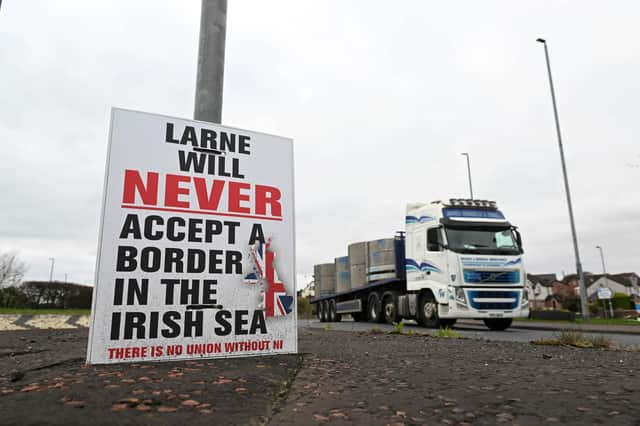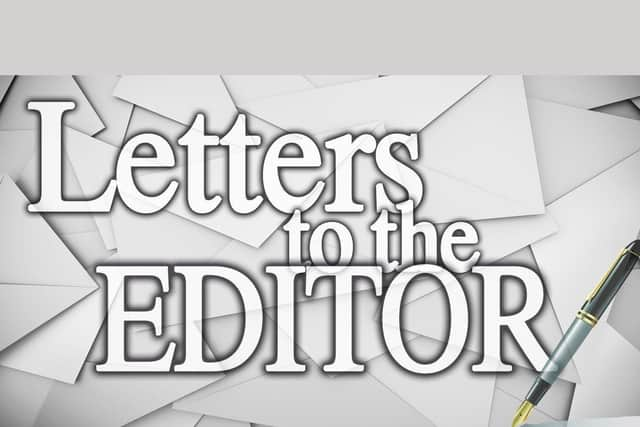Haulier: Protocol deal seems to repeat many of the trade barrier problems of the previous arrangements


Logistics businesses listened carefully to the prime minister unveiling the Windsor Framework yesterday and promising that it will deliver free flowing trade between Britain and Northern Ireland.
The PM committed goods will travel as normal without red tape or unnecessary checks except for those required to stop smuggling or crime.
Advertisement
Hide AdAdvertisement
Hide AdTraders and consumers could be forgiven for thinking that this rolls back the challenges of Brexit and goods remaining in the UK would follow the same requirement to move from Birmingham to Belfast as Birmingham to London as they did in 2020.


However, as with all things protocol, things are not quite straightforward especially when it comes to foodstuffs. Unlike traders selling goods within Britain, to supply Northern Ireland traders must apply to join a trusted trader scheme with the relevant UK authorities and provide a detailed list of the products that they wish to transport to Northern Ireland.
When moving the products they must complete a simplified customs declaration with 21 fields and upload it to an expanded trade system which will have dedicated UK and EU monitoring. Both the EU and UK will operate surveillance on goods as they move though Northern Irish ports where enhanced border controls will be required by October 2023 and products will subject to identity checks on a reducing scale from 10% to 5% by July 2025.
Products only for consumption in Northern Ireland will carry new labelling on individual retail packs stating "not for EU".
Advertisement
Hide AdAdvertisement
Hide AdFor traders who bring goods into the country with no fixed point of sale the challenges become more complex, especially for meat products.
As we begin to unpack the Windsor Framework it appears to repeat many of the issues of the previous implementation.
The actual contents seem to vary from the external labelling it got yesterday.
Peter Summerton, Co Down
See also: